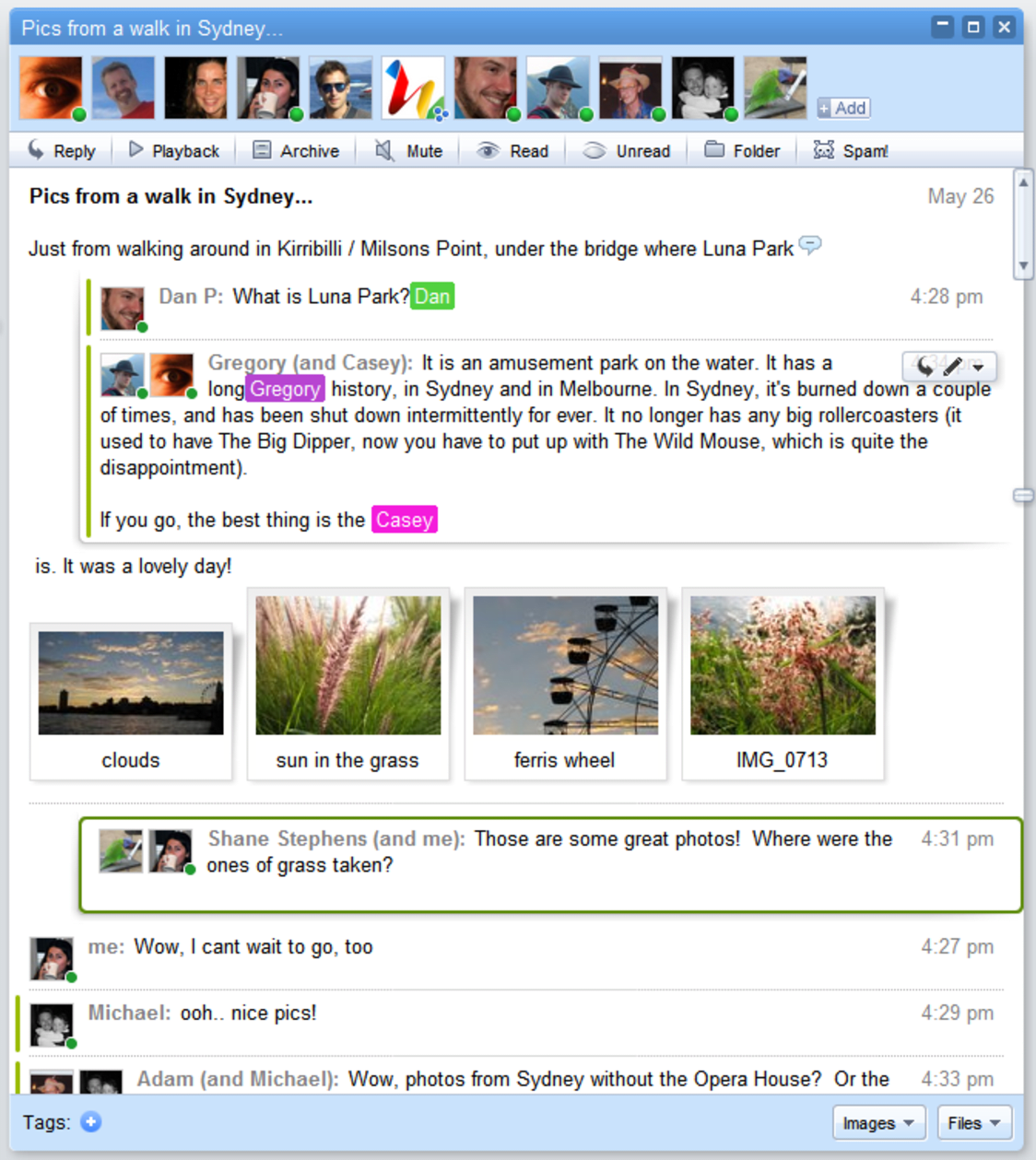Three mostly but not wholly unrelated pieces of tech media archaelogy
1.
Anna Weiner is one of my favorite tech writers: you probably remember her from last year’s earnest and perfect piece Uncanny Valley.
Later in 2016, she published a piece for The New Yorker about her passion for reading old issues of Wired magazine (aptly titled On Reading Issues of Wired From 1993 to 1995). I think about this piece often, specifially this paragraph:
All of this has made me feel not just nostalgic but a little wistful. As much as my Wired archive is a document of its era’s aspirations, it’s also a record of what people once hoped technology would be—and, in hindsight, a record of what it might have become. In early Wired, a piece about a five-hundred-thousand-dollar luxury “Superboat” would be followed by a full-page editorial urging readers to contact their legislators to condemn wiretapping (in this case, 1994’s Digital Telephony Bill). Stories of tech-enabled social change and New Economy capitalism weren’t in competition; they coexisted and played off one another. In 2016, some of my colleagues and I have E.F.F. stickers on our company-supplied MacBooks—“I do not consent to the search of this device,” we broadcast to our co-workers—but dissent is no longer an integral part of the industry’s ethos.
2.
Also from The New Yorker, this 1994 interview from Bill Gates, framed as a series of emails between the writer and the CEO. It is all stunning and prescient, but this email from Gates in particular:
Interactive TV is probably a really bad name for the in-home device connected to the information highway.
Lets say I am sitting at home wondering about some new drug that was prescribed to me. Or wanting to ask a question to my children’s teacher. Or curious about my social security status. Or wondering about crime in my neighborhood. Or wanting to exchange information with other people thinking about visiting Tanzania. Or wondering if the new lawn mower I want to buy works well and if its a good price. Or I want to ask people who read a book what they thought of it before I take my time reading it. In all of these cases being able to reach out and communicate by using a messaging or bulletin board type system lets me do something I could never do before. Assume that the infrastructure and device to do this is easy to use and it was funded by the cable or phone company primarily because I like to watch movies and video-conference with my relatives.
The bottom line is that 2 way communication is a very different beast than 1 way communication. In some ways a phone that has an unbelievable directory, lets you talk or send messages to lots of people, and works with text and pictures is a better analogy than TV. The phone did change the world by making it a smaller place. This will be even more dramatic. There will be some secondary effects that people worry about but they won’t be the same as TV. We are involved in creating a new media but it is not up to us to be the censors or referees of this media—it is up to public policy to make those decisions.
3.
This 2009 piece that raves about the promise of Google Wave by M.G. Siegler (who, ironically, is now employed by Google under their venture capital arm.) . There’s a lot of unwarranted praise and measured criticism, mostly about the unearned ambition of the project and how steep the barrier of entry is. But I am struck by how ahead of its time Wave really was (all I can remember about my initial response to it was mockery). This screenshot, minus all the late-aughts UI cruft, is basically Slack:

Some stuff about Buttondown because obviously I’m going to talk about the tool I built to send this email
I’m giving myself one more week of development time on Buttondown before I shift gears to marketing + maintenance, which, uh. Is scary? I am bad at committing to not writing code for things, but I really mean it this time. What I have to get out the door by next Sunday:
- Scheduling posts
- Publicly accessible archives
- A rough cut at a MailChimp import
When I write those three bullet points out, it seems totally reasonable – an hour here, an hour there, and I’m good to go. But when I look at my list of GitHub issues (currently sitting at 42!), it seems way more overwhelming.
Overwhelming and – oddly comforting?
I think I’m good at tricking myself into thinking that work solves everything: the presence of tasks means the possibility of accomplishment, of implementation, and it’s easy for me to retreat into the lie that writing code is the best way to progress on a project.
But of course, that’s not true. I need to start the hard part soon – the cold emails, the user research, the tests, the possibility that my assumptions are invalidated. And that’s scary, sure, but it’s exciting.
Three things I liked this week
- The illustration work of Allison Carl . I mean, this is just beautiful:


- Vallis Alps’ new EP, which is fun and amorphous and warm and bouyant and I have listened to it on repeat for the past two weeks.